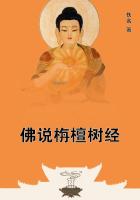The rule for rescuing people dying of starvation is to feed them in very small quantities, and frequently. By trying this, the president became one of the most unpopular of men who had ever held office; in fact, so unpopular among the Democratic senators and members of the House that a story which Zebulon Vance, of North Carolina, told went all over the country and still survives.
Vance, who had a large proportion of the citizens of North Carolina on his waiting list, and could get none of them appointed, said that the situation, which ought to be one of rejoicing at the election of a president by his own party, was like that of a client of his who had inherited a farm from his father. There were so many difficulties about the title and getting possession of it and delay, that the son said: "I almost wished father had not died."However, Mr. Cleveland, in his deliberate way did accomplish the impossible. He largely regained favor with his party by satisfying their demands, and at the same time so enlarged the scope of civil-service requirements as to receive the commendation of the two great leaders of the civil-service movement--George William Curtis and Carl Schurz.
President Cleveland entered upon his second term with greater popularity in the country than most of his predecessors. When he retired from office, it was practically by unanimous consent.
It is among the tragedies of public life that he lost entirely the confidence of his party and, in a measure, of the whole people by rendering to his country the greatest public service.
A strike of the men on the railroads tied up transportation.
Railroads are the arteries of travel, commerce, and trade. To stop them is to prevent the transportation of provisions or of coal, to starve and freeze cities and communities. Cleveland used the whole power of the federal government to keep free the transportation on the railways and to punish as the enemies of the whole people those who were trying to stop them. It was a lesson which has been of incalculable value ever since in keeping open these great highways.
He forced through the repeal of the silver purchasing law by every source and pressure and the unlimited use of patronage. His party were almost unanimous for the silver standard and resented this repeal as a crime, but it saved the country from general bankruptcy.
Except in the use of patronage to help his silver legislation, he offended his party by improving the civil service and retaining Theodore Roosevelt as head of the Civil Service Commission.
These crises required from the president an extraordinary degree of courage and steadfastness.
While Mr. Cleveland was in such unprecedented popular disfavor when he retired to private life, his fame as president increases through the years, and he is rapidly assuming foremost position in the estimation of the people.
Mr. Cleveland had a peculiar style in his speeches and public documents. It was criticised as labored and that of an essayist.
I asked him, after he had retired to private life, how he had acquired it. He said his father was a clergyman and he had been educated by him largely at home. His father was very particular about his compositions and his English, so that he acquired a ministerial style. The result of this was that whenever any of the members of the local bar died, he was called upon to write the obituary resolutions.
To take a leap over intervening years: After Mr. Cleveland retired from his second term I used to meet him very frequently on social occasions and formal celebrations. He soon left the practice of law and settled in Princeton, where he did great and useful service, until he died, as trustee of the university and a lecturer before the students.
Riding in the same carriage with him in the great procession at the funeral of General Sherman, he reminisced most interestingly in regard to his experiences while president. Every little while there would break out a cheer and then a shout in the crowd of one of the old campaign cries: "Grover, Grover, four years more."Mr. Cleveland remarked: "I noticed while president a certain regularity and recrudescence of popular applause, and it was the same in every place I visited." That cry, "Grover, Grover, four years more!" would occur every third block, and during our long ride the mathematical tradition was preserved.















